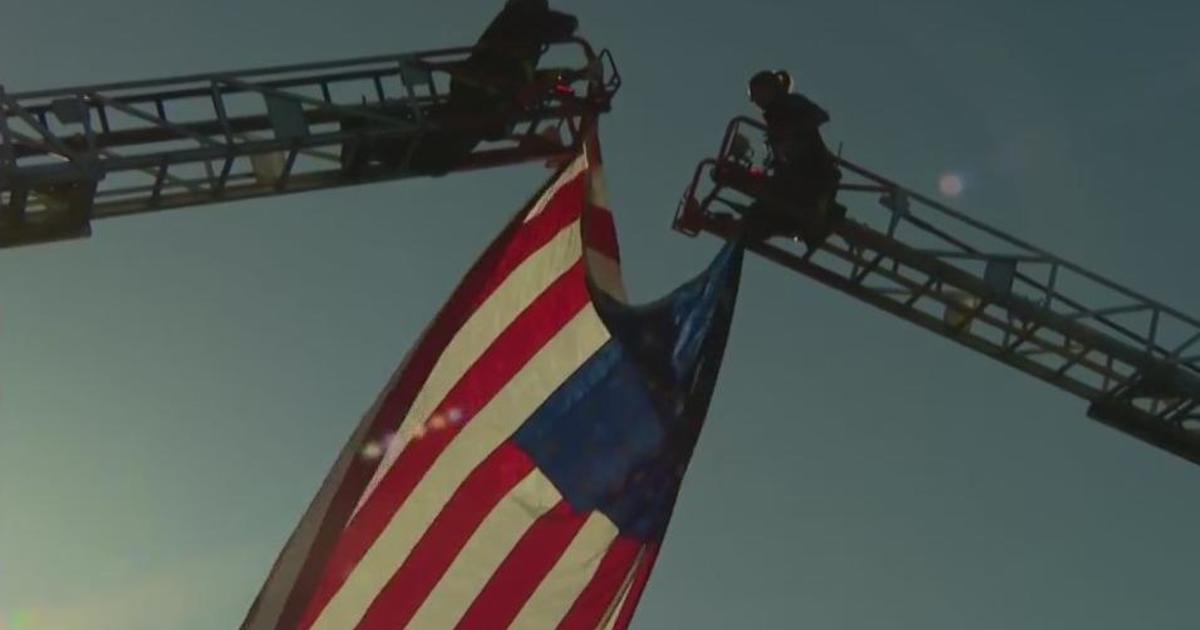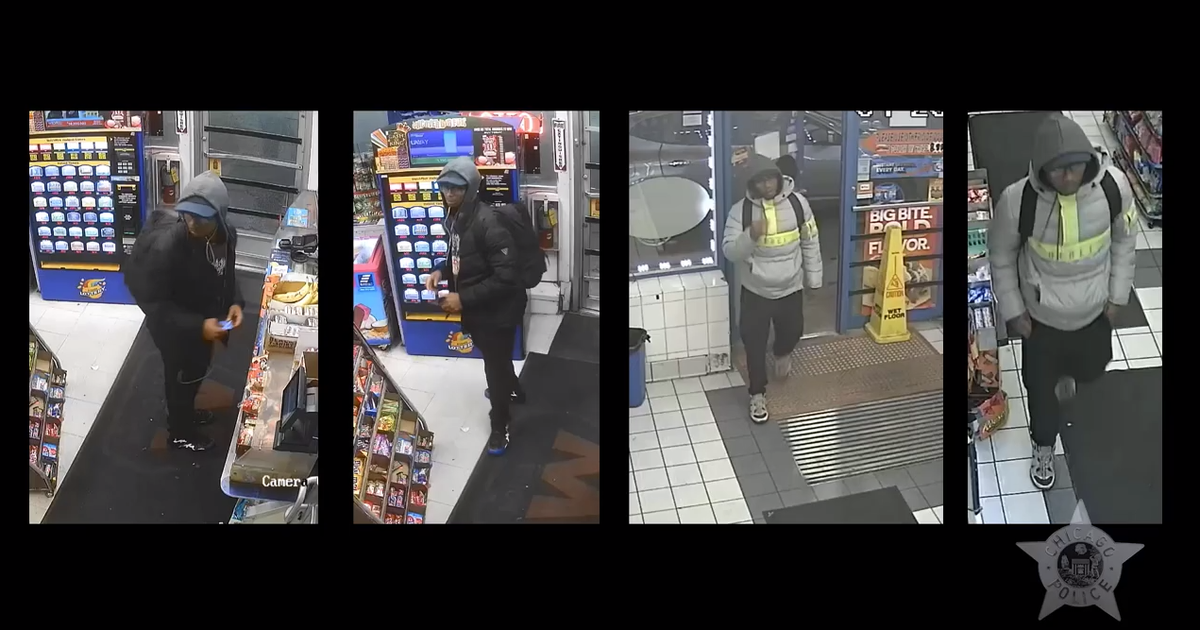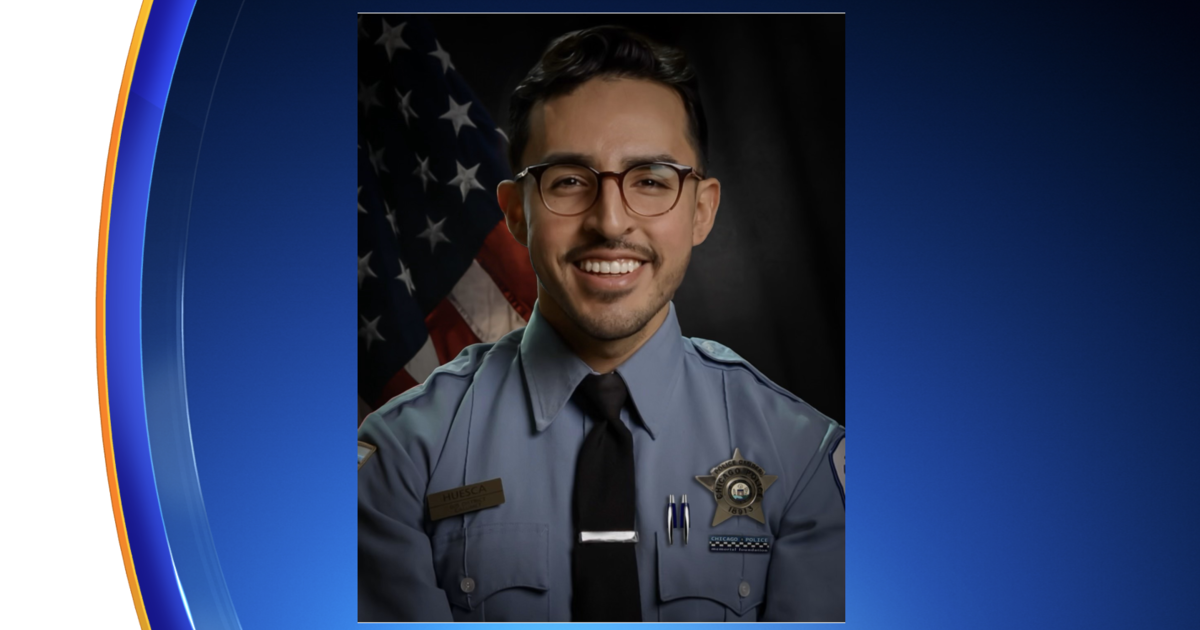Lightfoot, CPD Announce Changes To Search Warrant Policies; Police To Begin Tracking Wrong Raids Resulting From Faulty Information
by Todd Feurer, Mugo Odigwe, Dave Savini, Samah Assad, Michele Youngerman
CHICAGO (CBS) -- Mayor Lori Lightfoot and Chicago Police Supt. David Brown announced plans for sweeping changes to the Chicago Police Department's search warrant policies, after a years-long series of reports by the CBS 2 Investigators on wrong raids.
The city is making changes in three areas; involving what happens before, during, and after a search warrant is executed.
For the first time, Chicago Police will begin tracking wrong raids that result from faulty information, such as the raid on Anjanette Young's home two years ago, when she was handcuffed naked and afraid in a high-profile and violent botched police raid.
Lightfoot called what happened to Young "a clarion call for us to look at what happened, and what we needed to do to make sure that the circumstances that Ms. Young endured were never repeated again."
It's the second time in as many years the Lightfoot administration is announcing an overhaul of search warrant procedures in an effort to put a stop to wrong raids. The changes include expanding the department's efforts to track wrong raids.
The mayor announced her first search warrant and raid reforms in January 2020, but CBS 2 Investigator Dave Savini has reported instances when officers did not follow the policy and bad raids continued to happen after that.
Last year's change to the search warrant policy required the creation of a log if a raid is carried out at an address different than what is listed on the search warrant. But that doesn't account for the dozens of wrong raids CBS 2 found, including the one on Young's home.
That policy did not require a log when officers enter the address listed on the warrant, but learn the information used to obtain the warrant was faulty. That will change with the series of policy changes Lightfoot and Brown are announcing today. CPD now will be required to track all wrong raids, whether the result of officers carrying out a raid at the wrong address, or based on faulty information in a warrant.
So-called "no-knock" warrants also will be banned "except in specific cases where lives or safety are in danger," and must be approved by a bureau chief or higher, and will only be served by SWAT teams, rather than the officers who obtained the warrant.
All other search warrants will now have to be approved by a deputy chief or higher. That's a huge move, because that's three ranks above the previous requirement of a lieutenant approval.
During any raid, a female officer will now have to be present for the serving of all search warrants. A lieutenant or higher must be there to oversee the scene. And, in line with a previous policy, officers will also have to make note of any situation where they point a gun at any person.
All warrants also will require an independent investigation before approval and execution to corroborate the information used to obtain the warrant.
Before any search warrant is carried out, the team serving the warrant must conduct a planning session to "identify any potentially vulnerable people who may be present at the location in question, including children."
CPD also will carry out a critical incident after-action review after any wrong raid -- whether officers went to a location other than listed on the warrant, or if the information in the warrant itself was faulty. That review will include a requirement that CPD to report the facts of the wrong raid to the judge who authorized the warrant.
"That's another safeguard that I believe personally is critically important that the judge be notified that there was a wrong raid," Lightfoot said.
The department must create a log number for all wrong raids, including those in which search warrant is served at a wrong address or where the information used to obtain the warrant turns out to be false.
"As police officers we need to be the first to admit our mistakes and what we can do to make sure we can learn from those mistakes. This new path is a direct reflection of lessons learned," Brown said.
Zoom in and click on the points in the maps below to explore which neighborhoods police served the most search warrants. Size indicates amount of warrants. Color indicates percent Black or Latino populations.
Despite these changes, there are still many questions.
For example, the CBS 2 Investigators have reported on officers executing a standard knock-and-announce warrant who quickly barge in after knocking, without giving anyone time to get to the door.
And officers in our investigations of wrong raids didn't hand over the warrant to the people living in the house until, in some cases, hours later.
CBS 2 Investigator Dave Savini asked the mayor about that.
"Well, that shouldn't be happening, and now because there's a requirement that everything related to a search warrant, a body worn camera has to be present and activated, when we see that happening that's going to be a problem not only for those officers, but we will make sure that that is corrected on a systemic basis," Lightfoot said.
The CBS 2 Investigators were the first to expose how not all cops on raids were required to wear body cameras before a 2020 policy change requiring at least two body cameras are activated during the execution of a search warrant, from start to finish.
However, the mayor did not address how discipline would be incorporated in the new policies. None of the officers involved in wrong raids CBS 2 has uncovered have been disciplined, besides the officers in Young's case who have been taken off the street pending an investigation by the Civilian Office of Police Accountability.
The policy changes announced today have been posted on the CPD website and will be subject to public comment for the next 15 days. After that public comment period, CPD will review any comments and decide if any public concerns require further review or further changes to policy.
"That feedback will obviously be looked at and taken into consideration," Lightfoot said.
The mayor said she hopes the changes can go into effect by the end of the month.
Lightfoot and Brown said they do not have any concern that the new changes would make officers hesitant when carrying out raids, or put them in danger when executing search warrants.
Brown said the changes are rooted in ensuring that people are treated with dignity and respect when police execute search warrants at their homes.
"Following these policies and procedures with an emphasis on everyone deserves a measure of respect actually enhances our ability to do our job and creates an environment of trust in the community," he said. "If Ms. Young was the biggest drug kingpin, we still should have treated her with dignity and respect. That's should be clear to everyone that her dignity and respect had nothing to do with whether or not she was actually the focus of this, or this was a mistake and this was the wrong house. She still deserved a measure of respect, and that does not get in the way of us doing our job, without question."
Lightfoot said no office should ever hesitate to do his or her job because they are subject to scrutiny by a supervisor.
"If that is the case, then it's probably a search warrant that never should be executed in the first instance," Lightfoot said.
The changes announced by Lightfoot and Brown come one week after a group of progressive City Council members announced massive reform proposals of their own, dubbed the Anjanette Young Ordinance.
As CBS 2's Chris Tye reported, the proposed Anjanette Young Ordinance is what some city leaders call nothing short of a full-court press to dismantle systemic racism in the city of Chicago – with a reengineering of what comes before, during, and after every CPD raid.
Zoom in and click on the points in the maps below to explore which neighborhoods police served the most negative search warrants. Size indicates amount of warrants. Color indicates percent Black or Latino populations.
"When the 12 police officers barreled into [Anjanette Young's] home unannounced with a battering ram, it was the last straw in a long history of police misconduct," said Ald. Leslie Hairston (5th).
That last straw has given birth to first-of-its-kind legislation.
The Anjanette Young Ordinance was formally introduced to the City Council last Friday. If passed, it would reform what happens before, during and after moments like the wrong raid on Young's home two years ago this week, which was first exposed by CBS 2 Investigator Dave Savini.
"Not only helps me, but helps future, you know, people who may have experiences with this police department," Young said last week.
The ordinance is sweeping. It calls for all raids to include a knock, an announcement, and no less than 30 seconds' wait to break down a door.
It also calls for residential search warrants to be limited between 9 a.m. and 7 p.m. And any informants that provide bad tips can't be used again.
The ordinance further calls for body cameras to roll for the entire raid, and for police to limit raids when children and vulnerable people aren't there - and special plans if they are.
It first heads to City Council Public Safety committee for review.
"This is going to codify these reforms into city code," Ald. Maria Hadden (49th) said. "This is going to make the law of our city."
Late Wednesday afternoon, attorney Keenan Saulter, representing Young, endorsed the ordinance and issued a statement saying Mayor Lightfoot's proposal does not go far enough.
Saulter wrote that the mayor's proposal "falls woefully short of the types of reforms that the citizens of Chicago require to feel secure in their homes from these violent and often wrongful raids." He wrote that it is insufficient because what happened to Young is "not an anomaly."
"As CBS 2 has highlighted in its award-winning investigative series, it is just one egregious example of a documented pattern of illegal, violent, and dehumanizing raids that have traumatized thousands of Black and Brown families, for which CPD has failed to hold a single officer to account," he wrote.
Saulter wrote that officers "routinely break down doors and charge into people's homes with their guns drawn, causing families to believe that they are being robbed. They point assault rifles directly at young children and their parents; they handcuff children in front of their parents, and parents in front of their children; they subject family members to excessive force and verbal abuse; and they treat families with a basic lack of respect for their humanity, including detaining people like Ms. Young naked or near naked in front of intruding strangers without giving them the opportunity to put on clothes."
Further, Saulter wrote, police destroy people's personal items and break down doors and locks during raids – leaving them vulnerable to violence and theft.
The interactive visualization below represents search warrants executed by Chicago Police from 2016 to 2019. Toggle between various categories to learn more about how officers use search warrants as a policing tool. You can categorize the data by year, search warrant type, outcome and more.



